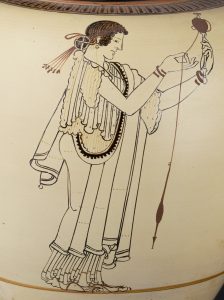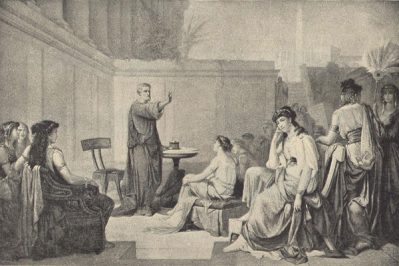Voorsmaakje
Samos en Leros zijn twee eilanden die, hoewel ze op een heldere dag in elkaars gezichtsveld liggen, een totaal verschillend karakter hebben: Samos is groot, groen, toeristisch, heeft ontelbaar veel stranden maar heeft ook een bevolking die – en dat is uitzonderlijk voor een Grieks eiland – veel meer met landbouw dan met zeevaart bezig is. Leros is klein, tamelijk volgebouwd, vol mannen die de zeven zeeën bevaren hebben, maar ook is het eiland getekend door een bijzondere geschiedenis, waardoor het toerisme nooit een vlucht heeft genomen. Ondertussen zijn er wel veel niet-Griekse expats neergestreken, die het straatbeeld in hoge mate bepalen.
Samos en Leros zijn ook de twee eilanden waar ik bloed zweet en tranen heb gelaten, en echt niet alleen omdat ik op beide eilanden een aantal ruïneuze huisjes heb opgeknapt. Het zijn eilanden waarop ik op alle mogelijke manieren geleefd heb, en waar ik me diep verbonden mee voel. Naast mijn eigen perikelen bij de renovatie van de huisjes, maakte ik er ook de economische crisis mee, die al snel werd verdrongen door een grote toestroom aan vluchtelingen uit Syrië, Afghanistan en andere landen. Waarna in de laatste twee jaar een ongekende toestroom aan met name Westeuropese toeristen volgde.
Deze eilanden lijken het vermogen te hebben ontwikkeld om (meestal tijdelijk, en soms letterlijk) als opvangkamp te fungeren voor bepaalde bevolkingsgroepen. Want eerder, ver voor het huidige vluchtelingen-issue, waren er politieke gevangenen die op beide eilanden werden vastgezet tijdens de Griekse burgeroorlog (met name op Samos), en in de decennia die daaraan vooraf gingen bouwde Mussolini Leros om tot een imposante marinebasis, waarna de Griekse regering besloot om er de grootste psychiatrische instelling van Griekenland neer te zetten. Maar veruit de grootste demografische verandering vond ruim 100 jaar geleden plaats, toen deze eilanden een enorme hoeveelheid aan Griekse vluchtelingen moest zien te verstouwen – na de Kleinaziatische katastrofi.
Hoe verschillend de eilanden ook zijn, ze lijken elke nieuwe invasie met glans te overleven. Of is dat maar schijn? En wat te denken van de meest recente invasie, die van de toeristen, met name de Turkse jachten en cruiseboten op Leros, en de groeiende aanwas aan Nederlanders die zomers de sfeer bepalen in menig Samiotisch dorp ?
Hoe Grieks zijn deze eilanden eigenlijk nog? En waren ze eigenlijk ooit wel authentiek? Hoe zit het bij voorbeeld met het verhaal dat Samos tijdens de Ottomaanse tijd een eeuw lang vrijwel leeg heeft gestaan? Of dat Erdogan zo zijn redenen heft om deze zo voor het grijpen liggende eilanden niet te bezetten? Waarom noemen de Grieken deze eilanden “akritika” – zoiets als “on the edge”?
In mijn lezing besteed ik aandacht aan hoe deze eilanden zich als kameleons door de eeuwen heen bewegen – behoedzaam, en dan ineens in sneltreinvaart en van kleur verschietend. Ik wil in het verhaal ook de socio-economische veranderingen proberen te benoemen die deze invasies met zich brengen, en zal daarbij, net als in mijn boeken en artikelen, het anekdotisch element niet schuwen.
Over de spreker
Ruard Wallis de Vries (Amsterdam, 1967) publiceert geregeld artikelen en boeken over Griekenland. Hij verdeelt zijn tijd tussen Oslo, Brussel en de Griekse eilanden.
Zijn eerste bezoek aan Griekenland dateert van de zomer van 1985, als Interrailer van 17 jaar oud. Hij was meteen verkocht en verknocht aan Hellas. Vervolgens was hij Erasmus-student in Athene, reisleider op Chios en Lesbos, freelance-journalist in Athene en opkoper/opknapper van een half dozijn Griekse bouwvallen op Samos en Leros. Ook vertaalde hij verschillende korte verhalen van het Grieks naar het Nederlands, en instigeerde een zomers filmfestival op Samos, waarop sinds 2012 Griekse kortfilms centraal staan. Sinds 2023 vormt hij de helft van het op Leros actieve muzikale duo ‘Déjà Ru’.
Naast diverse artikelen in NRC Handelsblad, Vrij Nederland en Lychnari publiceerde Ruard recentelijk twee boeken over Griekenland: ‘Misguided’ (Uitgeverij Ishin-Denshin, 2021) en ‘Griekse Toestanden’ (Uitgeverij Boudewijn Boer, 2022). In het voorjaar van 2025 staat het boek ‘Reislijder’ (werktitel) gepland (Uitgeverij Houtekiet).
Praktische informatie
Wanneer? woensdag 16 oktober 2024, om 19u30
Waar? leslokaal 0.4 (Blandijnberg 2, 9000 Gent)
Prijs? gratis voor leden van het Griekenlandcentrum, UGent studenten (m.u.v. PhD-studenten) en scholieren. Anderen betalen €5 aan de kassa.
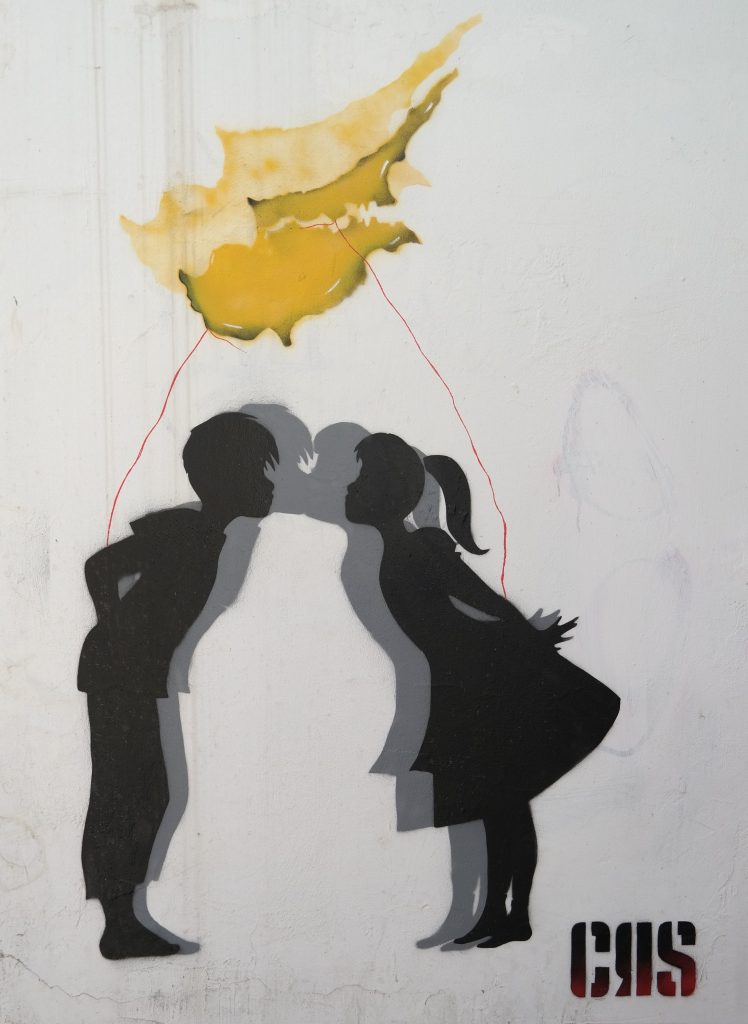
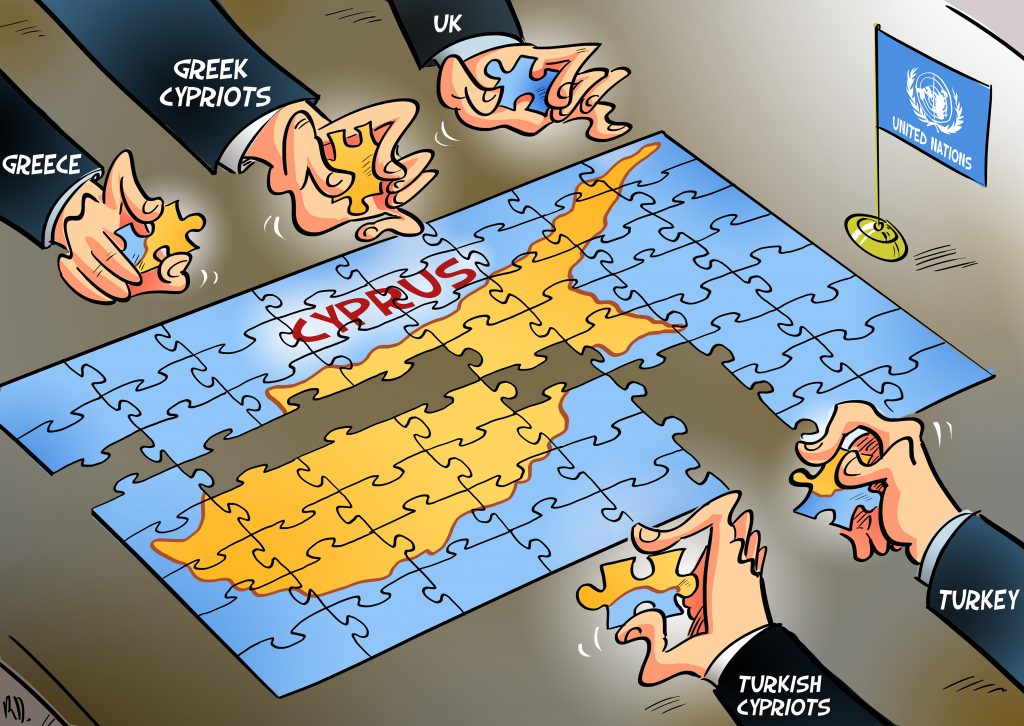
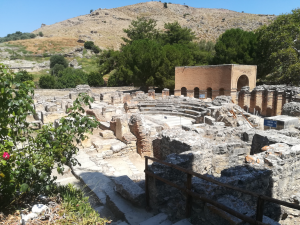
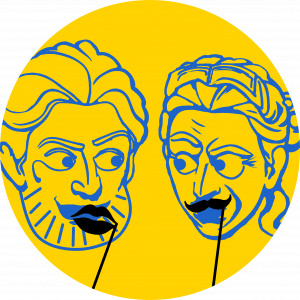 Elk jaar nodigt het
Elk jaar nodigt het 